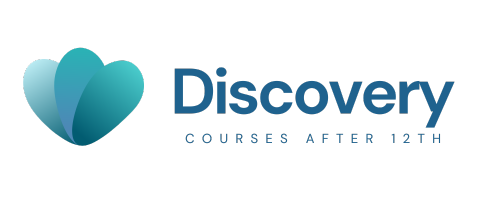Psychology Courses after 12th for Commerce, Arts, and More

Psychology courses after 12th offer diverse educational pathways for students interested in understanding the human mind, behavior, and the dynamics of human interactions. These courses are suitable for both Commerce and Arts students, providing a comprehensive foundation in the field of psychology. The keyword, Psychology Courses after 12th, signifies the critical juncture at which students can embark on a journey of exploration, gaining insights into various branches of psychology and preparing for rewarding careers in counseling, social work, education, and more. By enrolling in these programs, students open doors to an array of opportunities where they can contribute to individual well-being and societal progress.
A Versatile Journey: Whether you’re from a Commerce background with an eye for business applications or an Arts enthusiast keen on understanding human narratives, psychology offers a versatile range of opportunities. From unraveling the mysteries of human cognition to exploring the depths of emotions, these courses empower you to make a positive impact in various fields.
Specializations Tailored to Your Passions: Dive into specialized areas of psychology that align with your interests. If you’re passionate about helping individuals overcome challenges, Clinical Psychology might be your calling. For those fascinated by the intersection of psychology and law, Criminal Psychology offers an intriguing path. There’s a niche for everyone, allowing you to channel your enthusiasm into a fulfilling career.
Discovering New Avenues: The landscape of psychology courses after 12th is vast, offering a spectrum of choices that resonate with your aspirations. Uncover opportunities in educational psychology, organizational behavior, counseling, research, and much more. As you delve deeper, you’ll find endless possibilities to expand your horizons and make a real difference.
Unveiling the Future: In an evolving world, the demand for skilled psychologists continues to rise. Whether you’re considering pursuing a degree in India or exploring international options, the knowledge and skills you gain during these courses will open doors to diverse career paths and personal growth.
Invest in Your Future: While the cost of education is a consideration, the investment in psychology courses after 12th is an investment in yourself and your future. Many institutions offer financial aid and scholarship opportunities, making this journey accessible to a broader range of students, regardless of their financial background.
What Are the Benefits of Taking Psychology Courses in Canada After 12th Grade?
Taking psychology courses in Canada after 12th can offer numerous benefits, making it an attractive option for students interested in the field of psychology. Here are some key advantages:
1. High-Quality Education: Canadian universities are renowned for their high standards of education. Psychology programs are designed to provide a strong foundation in the subject, equipping students with the knowledge and skills needed for a successful career in psychology.
2. Diverse Specializations: Canadian universities often offer a wide range of psychology specializations, allowing students to focus on areas that align with their interests and career goals. Whether it’s clinical psychology, developmental psychology, forensic psychology, or another specialization, Canada provides options.
3. Experienced Faculty: Psychology departments in Canadian universities typically have experienced faculty members who are experts in their respective fields. Learning from these professionals can be highly beneficial, offering insights into the latest research and industry trends.
4. Research Opportunities: Canada is known for its strong emphasis on research in higher education. Many universities provide research opportunities for psychology students, allowing them to contribute to the field’s advancement while gaining valuable research experience.
5. Global Recognition: A degree in psychology from a Canadian university is globally recognized and respected. This recognition can open doors to international career opportunities, further education, and collaborations.
6. Cultural Diversity: Studying in Canada exposes students to a diverse and multicultural environment. This cultural richness can enhance one’s understanding of human behavior, making it especially relevant in psychology studies.
7. Career Prospects: A psychology degree from Canada can lead to promising career prospects. The country has a growing demand for psychologists in various sectors, including healthcare, education, research, and social services.
8. Networking Opportunities: Studying in Canada allows students to connect with peers and professionals from around the world. Building a strong network can be invaluable for future career growth and collaboration.
9. Personal Growth: Studying abroad, especially in a country as welcoming and diverse as Canada, can be a transformative experience. It fosters personal growth, independence, and cross-cultural understanding.
10. Quality of Life: Canada is known for its high quality of life, safety, and welcoming atmosphere for international students.
It’s important to research specific universities, programs, and admission requirements to ensure a good fit for your academic and career aspirations.
Top 10 Criminal Psychology Courses After 12th Grade
As of my last knowledge update in September 2021, I can provide you with a general idea of the types of criminal psychology courses that might be available after 12th grade. However, specific courses and their rankings may have changed since then. It’s recommended to research up-to-date information from universities and institutions to get the most accurate and current details.
| Courses | Courses Details |
| Bachelor of Science (BSc) in Criminology and Psychology | This program combines criminology and psychology, providing insights into criminal behavior, legal systems, and psychological factors that contribute to criminal acts. |
| Bachelor of Arts (BA) in Forensic Psychology | A BA in Forensic Psychology focuses on understanding criminal behavior, criminal profiling, and the application of psychology within the legal system. |
| Bachelor of Science (BSc) in Forensic Science with Psychology | This program combines forensic science and psychology, offering a comprehensive understanding of crime scene analysis, evidence interpretation, and psychological profiling. |
| Bachelor of Arts (BA) in Criminal Justice with Behavioral Science | This interdisciplinary program covers criminal justice principles along with a focus on behavioral science, including psychology, to analyze criminal behavior. |
| Bachelor of Science (BSc) in Criminal Psychology | A specialized program centered on criminal psychology, exploring the psychological motivations behind criminal acts, criminal profiling, and psychopathology. |
| Bachelor of Criminology | A degree in criminology often includes coursework related to criminal behavior, social factors influencing crime, and the psychological aspects of criminal justice. |
| Bachelor of Arts (BA) in Psychology with Forensic Concentration | This program offers a psychology degree with a concentration in forensics, covering topics like criminal profiling, forensic assessment, and legal psychology. |
| Bachelor of Science (BSc) in Applied Psychology with Criminal Behavior Emphasis | This program combines applied psychology principles with a focus on criminal behavior, preparing students for roles in forensic settings. |
| Bachelor of Arts (BA) in Psychology with Criminology Electives | A psychology degree with elective courses in criminology allows students to explore criminal behavior while building a strong foundation in psychology. |
| Bachelor of Arts (BA) in Criminal Psychology and Justice | This interdisciplinary program combines psychology, criminology, and criminal justice to provide a holistic understanding of criminal behavior and its implications. |
Remember that course availability and names can vary by institution, and the content may have changed since my last update. It’s advisable to research the specific
Top 5 Psychology Courses After 12th in Canada
Here’s an overview of some popular psychology courses in Canada that you can pursue after completing your 12th grade:
1. Bachelor of Arts (BA) in Psychology: This is a comprehensive program that provides a broad foundation in psychology. It covers various topics such as cognitive psychology, social psychology, developmental psychology, research methods, and more.
- Duration: Typically a 3-4 year program.
- Specializations: Some universities may offer optional specializations within the BA program, such as child psychology, forensic psychology, or health psychology.
2. Bachelor of Science (BSc) in Psychology: Similar to the BA program, but with a stronger focus on scientific aspects of psychology. It often includes courses in statistics, experimental design, and neuroscience.
- Duration: Typically a 3-4 year program.
- Specializations: BSc programs may offer specialized tracks such as neuroscience, cognitive science, or biopsychology.
3. Bachelor of Psychology (Honors): An intensive program for students with a strong interest in psychology. It involves in-depth coursework, and research projects, and may lead to an Honors thesis.
- Duration: Typically a 4-year program.
- Specializations: Some universities may offer the option to specialize in specific areas within psychology.
4. Bachelor of Arts (BA) or Bachelor of Science (BSc) in Psychology with a Co-op Option: These programs typically include work terms (co-op) where students gain practical experience in the field of psychology while studying. It’s a great way to bridge theory and practice.
- Duration: The addition of co-op terms may extend the overall program duration.
- Specializations: Similar to the regular BA/BSc programs, with the added benefit of gaining work experience.
5. Bachelor of Arts (BA) in Psychology with a Minor in Business, Sociology, or other fields: This program combines psychology with a minor in another discipline, such as business or sociology, allowing students to diversify their knowledge and skills.
- Duration: Similar to the regular BA program.
- Specializations: The minor field can provide a unique specialization or complement to psychology.
It’s essential to research specific universities in Canada for detailed course offerings, admission requirements, and any unique features they may offer. Keep in mind that some programs may have prerequisites, and admission criteria may vary. Consider your interests and career goals when selecting a psychology course that aligns with your aspirations.

Who Should Take Criminal Psychology Courses After 12th?
Criminal psychology courses can be a compelling option for individuals with a specific interest in understanding the minds and behaviors of criminals, as well as the broader field of forensic psychology. After completing their 12th grade, individuals who meet the following criteria may find criminal psychology courses to be particularly suitable:
1. Interest in Criminology: If you are intrigued by the causes, motivations, and patterns of criminal behavior, and wish to explore the psychological aspects that contribute to criminal acts, a criminal psychology course can provide valuable insights.
2. Curiosity about Forensic Science: If you have a fascination with the application of psychological principles in the criminal justice system, including criminal profiling, investigative techniques, and the intersection of psychology and law, this field might be a great fit.
3. Strong Analytical Skills: Criminal psychology involves analyzing complex cases, evaluating evidence, and forming hypotheses about the psychological factors that may have contributed to a crime. If you have strong analytical skills and enjoy problem-solving, this area could be appealing.
4. Empathy and Compassion: While it may seem counterintuitive, having empathy and compassion can be crucial in understanding criminal behavior. It’s essential to separate the understanding of criminal motivations from condoning their actions, and individuals with a compassionate approach can contribute to rehabilitation and prevention efforts.
5. Career Aspirations in Criminal Justice or Forensic Fields: If you are considering a career in law enforcement, criminology, criminal profiling, forensic analysis, or legal consulting related to criminal cases, a foundation in criminal psychology can be highly beneficial.
6. Research and Academic Pursuits: If you have a desire to delve deep into research related to criminal behavior, personality disorders, or the psychological aspects of criminal justice, criminal psychology courses can provide knowledge and skills.
7. Psychological Insight: If you’re interested in exploring the psychological factors that lead individuals to commit crimes, such as the impact of childhood experiences, mental health issues, or sociocultural factors, criminal psychology courses can be insightful.
It’s important to note that criminal psychology is a specialized field within psychology and often requires a solid foundation in general psychology. Individuals should thoroughly research the course offerings, prerequisites, and career prospects in this field before making a decision. Additionally, a strong ethical stance and a commitment to using knowledge responsibly are essential for anyone considering this area of study.
courses, admission requirements, and career prospects from universities or institutions you’re interested in.
Clinical psychology courses after 12th in Delhi
Clinical psychology courses after the 12th in Delhi provide a path for students to enter the field of mental health and therapy. These courses typically involve pursuing a bachelor’s degree in psychology followed by a specialized master’s degree in clinical psychology. The curriculum focuses on psychological assessment, counseling techniques, and practical experience through internships. Successful completion of recognized programs and certification from regulatory bodies like the Rehabilitation Council of India (RCI) may be necessary. Students interested in pursuing this career in Delhi should research reputable universities offering these courses and stay updated on the latest admission requirements and accreditation details.

In this article, we will explore the various clinical psychology courses available in Delhi after completing 12th grade. We will discuss the different institutions offering these courses and the eligibility criteria for admission.
Bachelor’s Degree in Clinical Psychology:-
| Bachelor’s Degree | Courses | Duration |
| Delhi University | Bachelor of Arts (Honours) in PsychologyBachelor of Arts (Honours) in Applied Psychology | 3 Year |
| Ambedkar University Delhi | Bachelor of Arts (Honours) in Psychology | 3 Year |
| Jamia Millia Islamia | Bachelor of Arts (Honours) in Psychology | 3 Year |
Master’s Degree in Clinical Psychology:-
| Master’s Degree | Courses | Duration |
| Delhi University | Master of Arts in Applied Psychology (Clinical Psychology) | 2 Year |
| Ambedkar University Delhi | Master of Arts in Psychology (Clinical Psychology) | 2 Year |
| Jamia Millia Islamia | Master of Arts in Psychology (Clinical Psychology) | 2 Year |
Diploma Courses in Clinical Psychology:-
| Master’s Degree | Courses | Duration |
| Institute of Human Behaviour and Allied Sciences (IHBAS) | Diploma in Clinical Psychology | 1 Year |
| All India Institute of Medical Sciences (AIIMS) | Diploma in Clinical Psychology | 1 Year |
Delhi offers a range of clinical psychology courses for students interested in pursuing a career in this field. Whether you are looking for a bachelor’s degree, master’s degree, or diploma course, there are several reputable institutions to choose from. Make sure to check the eligibility criteria and admission process for each course before applying.
Top 10 Clinical Psychology Courses After 12th
| Courses | Courses Overview |
| B.A./B.Sc. Psychology | A bachelor’s degree with a specific focus on clinical psychology, prepares students for further specialization in this field. |
| B.A./B.Sc. (Hons.) Psychology | An intensive undergraduate program focusing on specialized areas of psychology, providing a deeper understanding of the subject. |
| B.A./B.Sc. Applied Psychology | A program that emphasizes the practical application of psychological principles in various contexts, including clinical settings. |
| B.A./B.Sc. with a Specialization in Clinical Psychology | Short-term courses provide specialized training in clinical psychology topics, which can be beneficial for skill enhancement. |
| M.A./M.Sc. Clinical Psychology | A postgraduate degree focusing on clinical psychology, providing in-depth training in assessment, diagnosis, and therapeutic interventions. |
| M.A./M.Sc. Counseling Psychology | A program that emphasizes counseling techniques, psychotherapy, and mental health support. |
| M.A./M.Sc. Applied Psychology | A master’s program that applies psychological concepts to real-world scenarios, including clinical practice. |
| M.Phil. in Clinical Psychology | A research-oriented program that often serves as a bridge between master’s and doctoral studies in clinical psychology. |
| Ph.D. in Clinical Psychology | An advanced research degree for individuals aiming to become experts in clinical psychology, often involving independent research and specialization. |
| Diploma/Certificate Courses in Clinical Psychology | Short-term courses providing specialized training in clinical psychology topics, which can be beneficial for skill enhancement. |
Note: They are all courses whose duration is around 3 years.
Exploring Psychology Courses After 12th: Options for Commerce and Arts Students
Psychology courses after the 12th standard offer a diverse range of options for both commerce and art students seeking to delve into the captivating world of the human mind and behavior. These courses not only provide valuable insights into psychological principles but also open up various career avenues in fields such as counseling, human resources, social work, and more.
Commerce students can explore a Bachelor’s in Human Resources, which touches on psychological aspects of organizational behavior, while arts students can consider a Bachelor’s in Social Work for a broader societal impact. Additionally, shorter-term diploma or certificate courses provide quick insights into psychology. Choosing the right course requires considering individual interests and career goals. Consulting with career counselors and researching reputable institutions is crucial to ensure a fulfilling and successful journey into the multifaceted realm of psychology.
| Courses | Duration | Courses Overview |
| Bachelor’s Degree in Psychology (B.A./B.Sc.) | 3 years | This is the foundational degree in psychology and covers a broad range of psychological topics. It’s suitable for students from any stream and provides a strong base for further specialization. |
| Bachelor’s Degree in Applied Psychology (B.A./B.Sc.) | 3 years | Applied psychology focuses on practical applications of psychological principles in various settings, such as counseling, organizational behavior, and mental health support. |
| Bachelor’s Degree in Counseling Psychology (B.A./B.Sc.) | 3 years | This program emphasizes the development of counseling skills and techniques, preparing students for roles in therapeutic settings. |
| Bachelor’s Degree in Social Work (B.A./B.S.W.) | 3 years | Social work programs often include courses in psychology and provide opportunities to work with individuals and communities in need. |
| Diploma/Certificate Courses in Psychology | 1 year or less | Short-term diploma or certificate courses in psychology offer a basic understanding of the subject and can be a great starting point. |
| Bachelor’s Degree in Human Resources (B.A./BBA) | 3 years | While not purely a psychology degree, human resources programs cover topics related to organizational behavior, employee well-being, and interpersonal dynamics. |
| Bachelor’s Degree in Education (B.Ed.) | 2 years | If you’re interested in becoming an educational psychologist or working in the field of education, a B.Ed. with a focus on psychology can be valuable. |
It’s essential to research the specific courses offered by universities and colleges in your region to determine the exact curriculum, admission requirements, and available specializations. Remember to choose a reputable institution that is recognized by the appropriate regulatory bodies. If you’re unsure about which course aligns best with your interests and career goals, consider speaking with a career counselor who can provide personalized guidance based on your strengths and aspirations.
Top Psychology Courses After 12th in India: Fees, Options, and Career Paths
As of my last knowledge update in September 2021, I can provide an overview of some of the top psychology courses available in India after the 12th standard, along with potential career paths and considerations regarding fees. Please note that specific details, fees, and course availability may have changed since that time, so it’s essential to verify this information with the latest sources.
1. Bachelor’s Degree in Psychology (B.A./B.Sc.): A foundational course that covers various aspects of psychology, including human behavior, cognitive processes, and research methods. This degree provides a solid base for further specialization.
Career Paths: After completing this degree, you can work as a research assistant, or counselor (in some cases), or pursue further education for more specialized roles.
Duration: Typically 3 years
Fee Range: ₹20,000 to ₹1,00,000 per year
2. Bachelor’s Degree in Applied Psychology (B.A./B.Sc.): This program focuses on applying psychological principles in practical settings, such as organizations, mental health support, and counseling.
Career Paths: Opportunities in counseling centers, human resources, social work, and mental health organizations.
Duration: Typically 3 years
Fee Range: ₹25,000 to ₹1,20,000 per year
3. Bachelor’s Degree in Counseling Psychology (B.A./B.Sc.): This course emphasizes the development of counseling skills and therapeutic techniques, preparing students for direct work with individuals.
Career Paths: Opportunities in counseling, therapy centers, rehabilitation centers, schools, and social services.
Duration: Typically 3 years
4. M.A./M.Sc. in Clinical Psychology: A specialized master’s program focusing on clinical assessment, psychotherapy, and mental health diagnosis.
Career Paths: Clinical psychologists, therapists, counselors in hospitals, mental health institutions, private practice, or academia.
Duration: Typically 2 years
Fee Range: ₹100,000 to ₹300,000 per year
5. M.A./M.Sc. in Counseling Psychology: This master’s program deepens knowledge in counseling techniques and mental health support.
Career Paths: Counselors, therapists, career counselors, or school counselors.
Duration: Typically 2 years
Fee Range: ₹16,000 to ₹200,000 per year
Regarding fees, the cost varies widely based on the institution, location, and level of the course. Government institutions usually have lower fees compared to private colleges.






